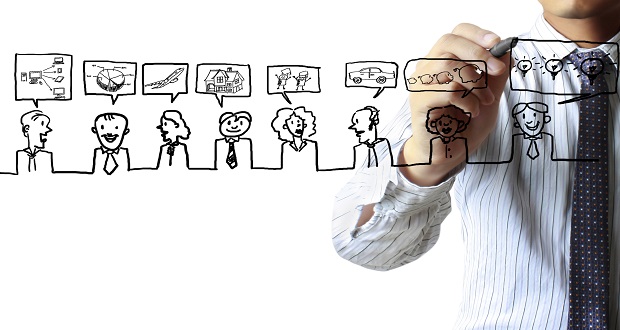
Racism has cost us 16 trillion dollars in 20 years. After many days of negative media and about all things diversity, inclusion and anti-racism, I was intrigued to see headlines like this. NPR, Forbes… you name it, were sharing Citigroup’s latest report, CLOSING THE RACIAL INEQUALITY GAPS: The Economic Cost of Black Inequality in the U.S.
I’d like to first, hand my kudos to Dana Peterson and the team at Citi behind this report. Not only is it comprehensive, delving “beyond the boardroom,” but it is detailed and intentionally focused on racism and its impact on the economic success of our country. It does all of this without conflating racism with socioeconomic status or another proxy. The statistics, charts, and data presented do an excellent job showing not only the current state of the impact of racism, but also its impact across history: from housing security, educational opportunities, healthcare, and more. Every industry has lost money due to racism. Citi’s report is helpful and succinct for getting revenue-focused leaders to invest in what has been historically seen as an external, social issue that we have “moved past.” However, as I read through the data, the action steps, the reviews boasting these claims, I stopped myself before I drank the “business case” Kool-Aid that is all too prevalent in our work.
Citi’s report is helpful and succinct. However, as I read through the data and action steps, I stopped myself before I drank the 'business case' Kool-Aid that is all too prevalent in our work. Share on XThe framing of this report does not prioritize ending the preventable deaths of pregnant Black Women or paying Latinx workers a living wage. It is not primarily framed about ensuring homes are safe, secure, and rid of violence for children of color. It is not about holding people accountable for racial profiling and racist language. Frankly, it is not primarily about ending racism. Let’s face it and name it: This report is framed around that C word, that even the Diversity, Equity and Inclusion “industry” tends to fall back upon — Capitalism.
The Citi report does not prioritize humanity. It is framed around that C word, that even the DEI 'industry' tends to fall back upon - Capitalism. Share on XAll of us, directly or not, are working within a capitalist system. This inevitably minimizes the lengths we will go to narrow these gaps, and inequities. It’s not a coincidence that as the rich get richer, the gap between the rich, poor and everyone in between has gotten wider.
We may at first glance perceive economic-centered research on racism as a diversity “win,” but the reality is that framing like this perpetuates inequity. This framing is about making sure that money stays in the hands of those already holding the most financial and societal power in our capitalist system, and the reality is, this group is overwhelmingly white and male. Meanwhile, capitalism continues to be the beating heart behind the inequities, the discrimination, and the inevitable income inequality gap that exists today. It’s the beating heart behind many of our public service sectors — including diversity, equity and inclusion.
We may perceive economic-centered research on racism as a diversity 'win,' but the reality is that framing like this perpetuates inequity. This framing is about making sure that money stays in the hands of those already holding the… Share on XIt is infuriating that disparities we can trace to systemic racism (which aren’t new, are public data and are the lived realities of people of color), are now getting attention because researchers have drawn connections to how they affect those in power — who already have the access, ability and privilege of holding a stake in the free market. In theory, we all have access to the free market. Yet as this report (and many others) have repeatedly identified, racism has and continues to be a barrier for entrepreneurship, gaining lines of credit, securing loans and ultimately, being an active player in the economy.
Sure, the data from this report may inspire stakeholders to prioritize racial justice in their spheres of influence, and I am glad that the people at the top are now recognizing this. But it also poses darker questions:
Wasn’t it enough that systemic racism disproportionately impacts the lives and economic prospects of people of color? Is addressing racism only worth addressing if it ALSO affects the pockets of White folks? Is racism only worth addressing if the S&P 500 drops to a decade low? How are we ever going to dismantle racist systems if we keep centering GDP?
If we truly want to be advocates, disrupters and power brokers in service of DEIJ, I urge us to actively interrogate the -isms of society by decentering the 'capitalist case' once and for all. Here are some ways to start: Share on XIf we truly want to be advocates, disrupters, activists and power brokers in service of diversity, equity, inclusion and justice, I urge us to actively interrogate the -isms of society by decentering the “capitalist case” once and for all. Here are some ways to start:
- Recognize and say it: Capitalism is a major driver of systems of oppression in the United States. It may not be practical to completely dismantle this system, but in the meantime, we can work toward reminding our organization and community leaders that this is about humanity and liberation. It is an injustice to prioritize the capitalist case without amplifying and prioritizing the need for physical and psychological safety.
- Acknowledge that financial investment is needed to dismantle our systems of oppression. Before we plan to make up the financial “loss” due to racism, let’s address the racism. This means that if you truly want to dismantle racism, inequities and all of the “isms,” you will have to give some of your literal “capital” to create opportunity for people of color to thrive. Hiring for “representation” isn’t going to cut it. It will take time and financial investment to unlearn and relearn what it means to provide equitable opportunities across our communities.
- Shift from segmented “Corporate Social Responsibility” to embedded Corporate Social Justice. Acts of service, inside and outside the workplace, should go beyond just volunteering, charitable giving or funding; many of these actions are rooted in paternalism. A trickle-down approach (also rooted in capitalism) may provide some immediate financial relief but fails to eliminate the power structures at play that uphold discrimination and poverty.
What does it look like to embed social justice throughout your organization? Directly give financial power to people of color, instead of keeping them dependent on your charity and what you think is best for them. Invest in Black entrepreneurs and divest in the prison industry. Eliminate monetary or fundraising requirements to be a part of your Board of Directors. Be a community partner, not a sympathetic donator.
- Disrupt the notion that value is solely financial. We are working within a system that prioritizes quantitative value. Whether it’s the number of sales, test scores, surgical procedures or new clients, capitalism has created a system where our performance is monetized, yet our financial compensation is disparate based on the color of our skin. Thus, we need to not only be intentional about pay equity, but also recognize and create value and opportunities for growth through more than just capitalist productivity. Does fostering a culture of inclusion hold the same value as meeting quotas? Is valuing justice and equity a part of your company’s goals?
- Own up when and where you have power and leverage it to make changes. People of color have and are continuously fighting the “fight.” Telling Black and Brown folks that they need to be proactive, self-advocate, take more initiative, try harder to start their own business or find a loan lender, isn’t the conclusion we should be drawing from these data points. Instead, ask yourself, “What can I advocate for and change to address injustice and create more opportunities?” Of course, discriminating against Black and Brown folks prevents money from coming into our economy by literally keeping them from full participation; this is racist, and it needs to be fixed. Yet, this is a far deviation from the why; dismantling racism is about humanity, not money.
This human-centered “why” for equity and justice is easier spoken than realized, but I hope these tips provide you a tool to start this shift toward decentering capitalism and centering humanity in our work. Let’s genuinely live up to our commitment to liberty and justice for all.



















